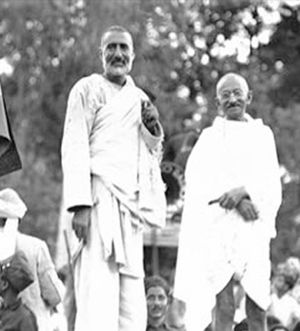
Gandhism is a set of ideas that describes the inspiration, vision, and the life work of Mohandas K. Gandhi. It is especially connected with his contributions to the idea of nonviolent resistance, sometimes also called civil resistance.
The word "Gandhism" also includes what Gandhi's ideas, words, and actions mean to people around the world and how they used them for guidance in building their own future.
However, Gandhi did not approve of the term "Gandhism". As he explained:
There is no such thing as "Gandhism" and I do not want to leave any sect after me. I do not claim to have originated any new principle or doctrine. I have simply tried in my own way to apply the eternal truths to our daily life and problems...The opinions I have formed and the conclusions I have arrived at are not final. I may change them tomorrow. I have nothing new to teach the world. Truth and non-violence are as old as the hills.[1]
Without a "Gandhism" approved by Gandhi himself, there is a way of thinking that one has to get what Gandhism stands for, from his life and works. One such deduction is a philosophy based on "truth" and "non-violence" in the following sense. First, one should recognize and accept the truth that people are different at all levels ("truth"). Second, one should never resort to violence to settle built-in differences between human beings at any level: from between two people to two nations to two races or two religions ("non-violence").